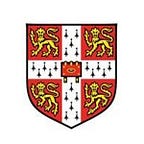The schools liaison officer who says: consider applying to Cambridge
Inspirational teaching makes all the difference. At her secondary school in Wolverhampton, Claire Nellany’s history teacher brought objects into the classroom to bring the subject alive. She went on to read history at Peterhouse. Now Claire hosts school visits to Girton College from her home region.
When I think of Cambridge I think of the river. When I was here as a student I learnt to row and I loved it. It was something completely new to me, but it quickly became a huge part of my life here — it was hard work, but the camaraderie, excitement of races and, most of all, the very close friendships formed through the Boat Club made it worth it.
I’m working for Girton College as Schools Liaison Officer. The role is all about making links with schools and encouraging students to aspire to Cambridge and to university more generally — especially students who might otherwise not consider it. I visit schools and host visits to Girton. I read history at Peterhouse, the oldest Cambridge College. Girton too has a fascinating history. It was established for female students in 1869 and went co-ed in 1978.
I fell in love with Cambridge when I visited my brother here. Because we both went to Cambridge, people think our parents must be pushy. But they never were — they’re really laid back but they encouraged us to read and to ask questions. I spent a lot of time borrowing books from my local library.
At school I had a brilliant history teacher. Home is Wolverhampton in the Midlands and I started secondary school with a love of history. Mr Walsh taught history and politics. He collected things in car boot sales that related to what we were studying. Old coins, busts of Russian leaders, commemorative teapots. Some were valuable and others worthless. They brought the subject alive.
Pupils are worried about the cost of a degree especially if their parents haven’t been to university. Recently I helped to organise a trip to a school near Birmingham. The pupils we met were clear that they wanted to earn a good salary and have interesting job. But they were a lot less certain about going to university. We need to get the message across that a degree really helps — and that you don’t have to pay up-front.
We need to work with children from Year 7 (aged 11–12) upwards. Research has shown that pupils begin to form opinions about the options that are, or aren’t, open to them much earlier than we thought. If we’re going to widen access, we need to make a sustained effort to encourage children to consider going to university. A one-off visit to a school isn’t enough — it needs to be followed up.
Younger pupils don’t always know what university is. If no-one in your family went to university, how do you know what it is? When we visit schools, children ask questions like: are you allowed out, what time do you go to bed, are you allowed a mobile phone? We can help them form a picture of what it’s like to be independent.
I went to the best state school in my area. I did well and had a lot of support from my school. It was still a shock to come to Cambridge and find I was just a small fish in a big pond. I had a shaky start because I was ill in my first term. But I settled in and made a group of wonderful friends: around 20 of us meet up regularly. We’re all doing jobs we enjoy.
Academically, Cambridge is challenging. Note-taking and essay writing were skills I struggled with at first. I should have worked harder, and gone to more lectures beyond my subject areas, but I don’t regret for a moment all the fun I had. My degree helped me to get a place on Teach First, a scheme that places graduates in schools. It was a question of learning fast.
I’ve taught history in state and private schools. I worked in a state school in Hackney, London, and then in an independent school in Cambridge. I’m glad to have experienced both and observe the differences. I could see that the year-10s, for example, were just as bright in the state school but didn’t have the same resources available to them when it came to advice about higher education and careers.
As a Schools Liaison Officer, I can make a difference. The Cambridge Colleges have divided the country up into ‘link areas’ and I’m really happy to be working with schools in the Midlands. I know what it’s like to grow up in the region and to study at Cambridge. Too many bright children think top universities are not for them — and they shouldn’t.
In September 2017 Claire will be joining ‘Ambitious Futures’, a graduate scheme in university administration. Her first placement will be in the Registrary’s Office at Cambridge University.
This profile is part of our This Cambridge Life series.
